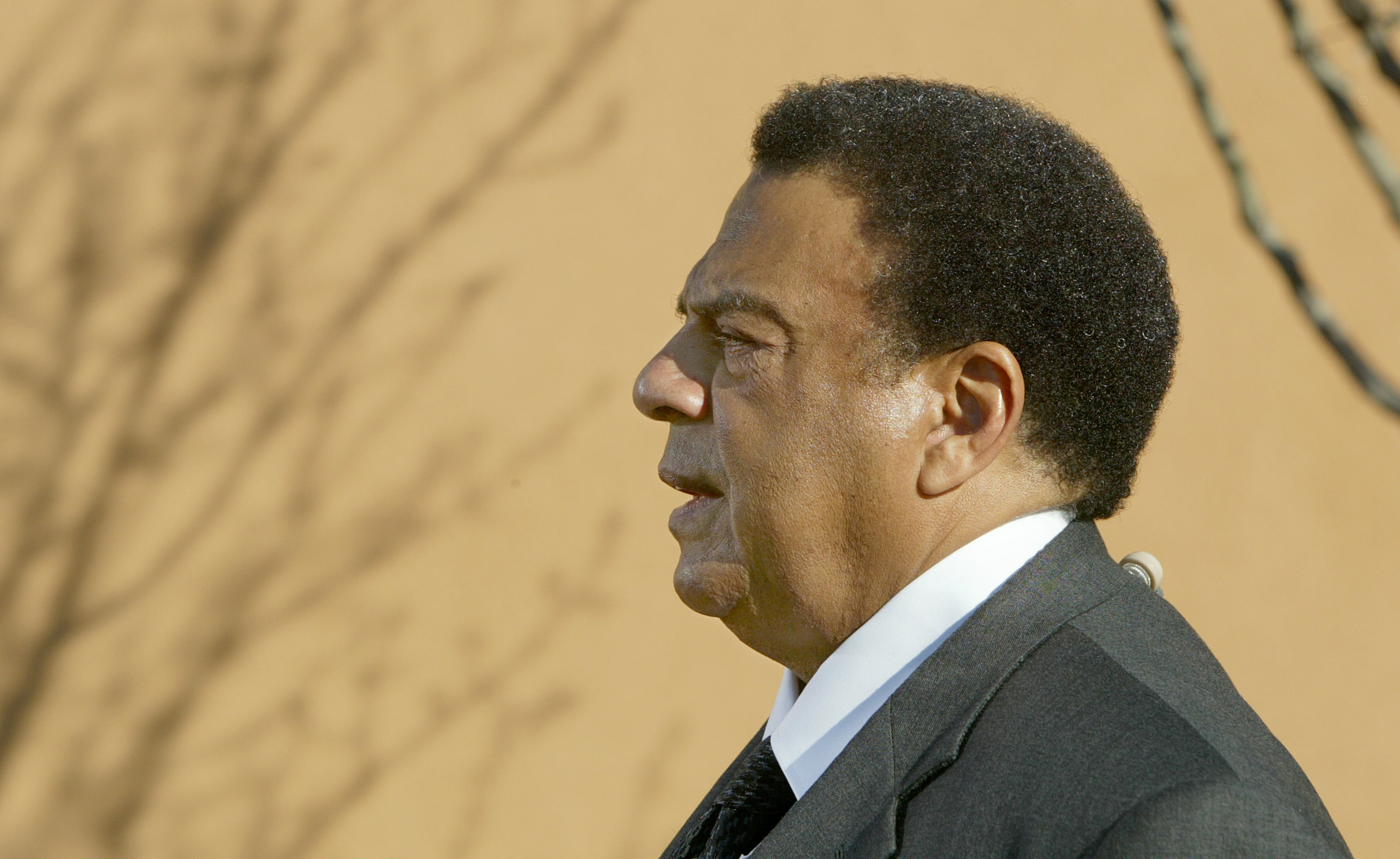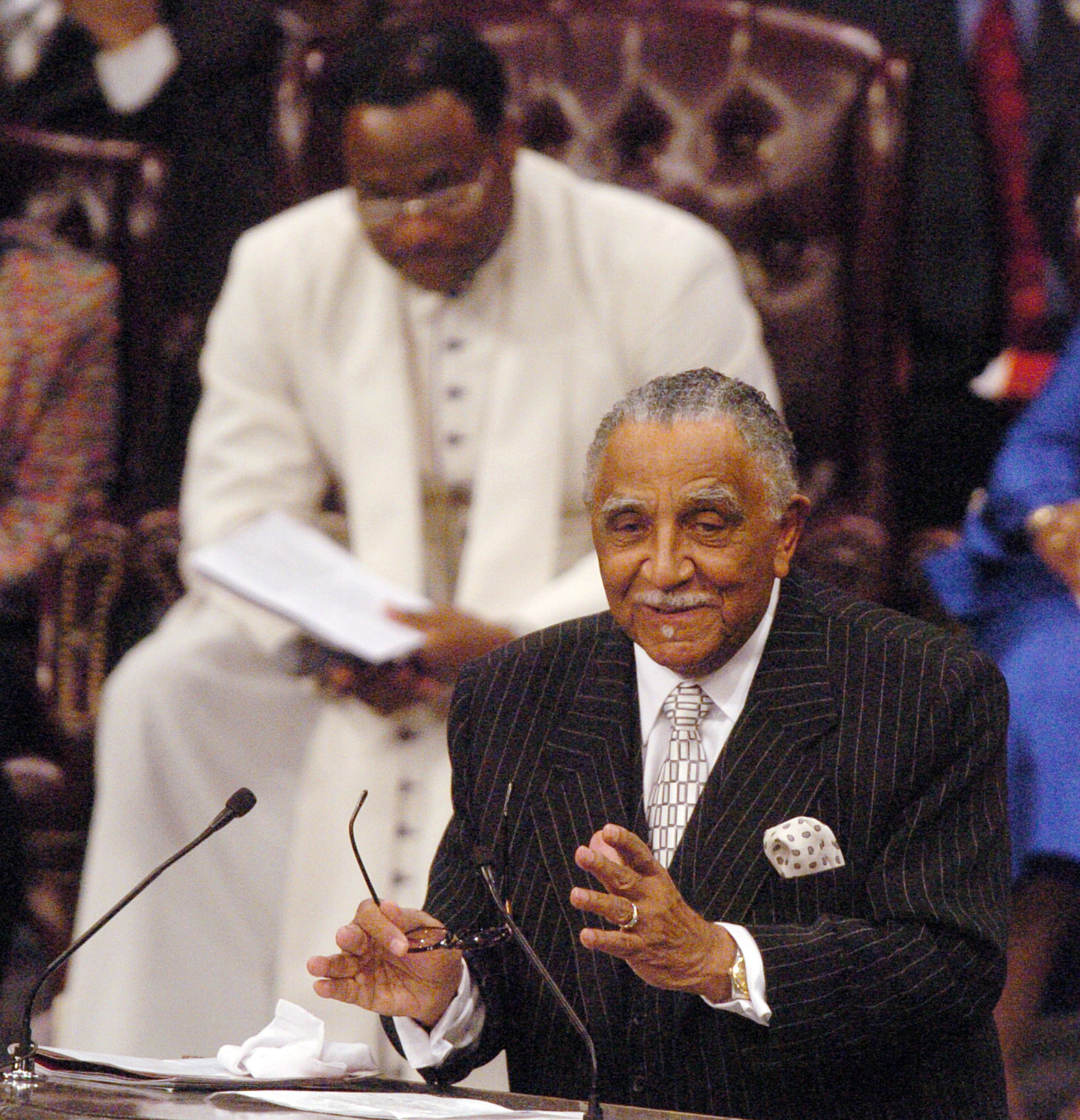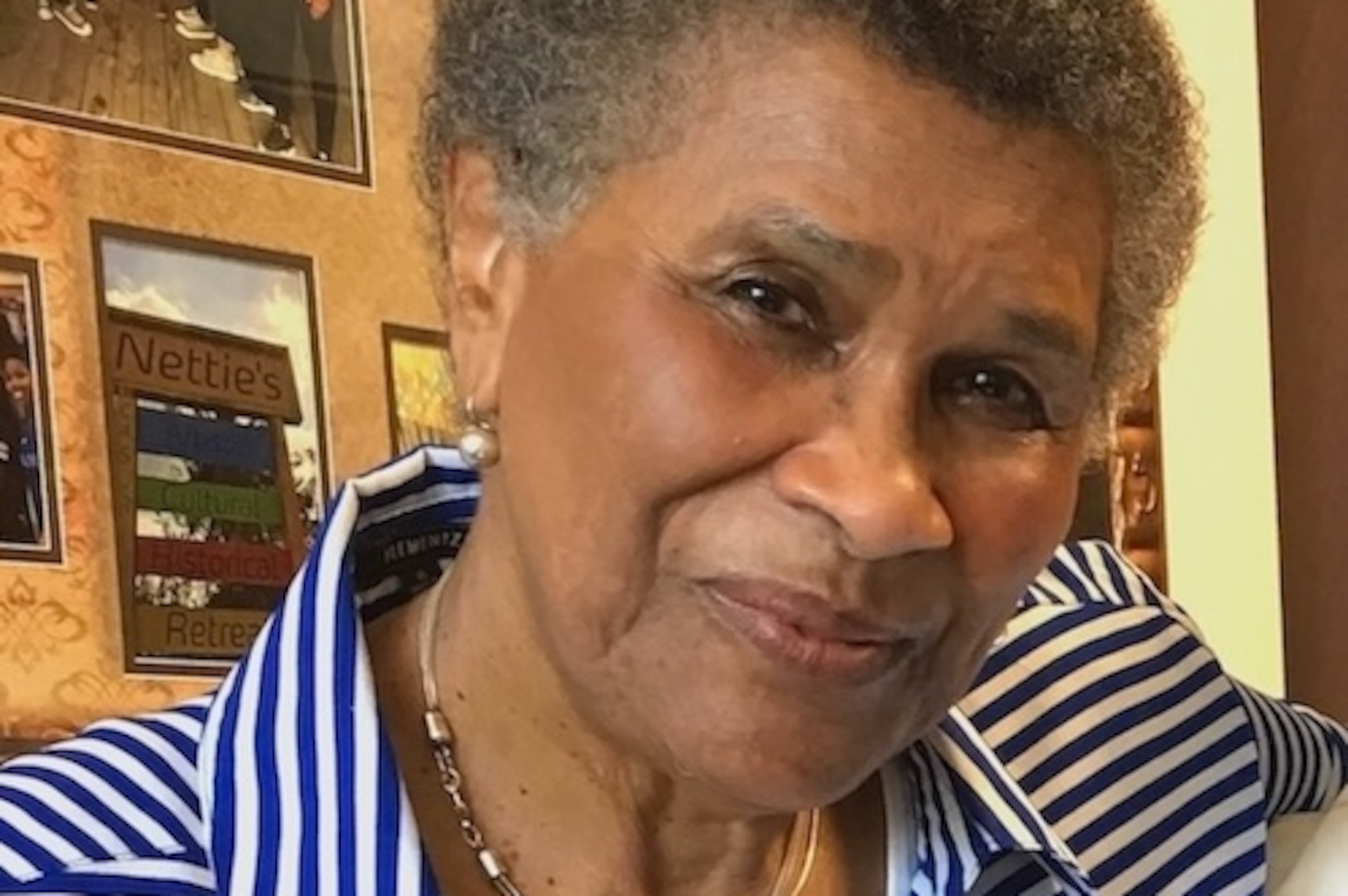









Published Feb. 8, 2006
The body of Coretta Scott King now lies in a temporary mausoleum near where her husband’s remains are entombed at the King Center on Auburn Avenue.
A week of services and memorials, drawing everyday folks from working-class Atlanta to august dignitaries from as far away as South Africa, culminated Tuesday afternoon when more than 10,000 people -- including President Bush and three ex-presidents -- gathered at the New Birth Missionary Baptist Church in Lithonia to say a final goodbye.
“Who could have brought this crowd together but Coretta?” the Rev. Joseph Lowery, former president of the Southern Christian Leadership Conference, which he helped found with Martin Luther King Jr., said to cheers in the megachurch’s sanctuary.
King died Jan. 30 at 78 of complications from ovarian cancer while staying at an alternative treatment center in Mexico.
Tuesday’s service, billed as a celebration of King’s life and work, included recollections of King’s life, calls for renewed commitment to achieving racial equality, jokes, music and numerous loud ovations. Occasionally, speakers made subtle and not-so-subtle political jibes, many directed at the administration of President Bush. For the several hours he attended the service, he sat in a leather chair directly behind the podium. The service was scheduled to run from noon to 3 p.m., but ran instead past 6 p.m.
More than eight hours passed from the time the service began until the time King was interred. Her husband’s funeral and burial in 1968 took about six hours.
More than 40 people sang or spoke at Tuesday’s service, including Bush and three former presidents, Bill Clinton, George Bush and Jimmy Carter; Sens. Edward Kennedy and Hillary Rodham Clinton; Atlanta Mayor Shirley Franklin, former Mayor Andrew Young and poet Maya Angelou. Stevie Wonder, the Atlanta Symphony Orchestra and others performed.
The crowd was filled with civil rights leaders, politicians, celebrities and average people -- many of whom waited for hours before the sun rose to get into the service.
The funeral was held at New Birth, instead of at Ebenezer Baptist Church where Martin Luther King Jr. preached, in part to accommodate the large crowd.
But the funeral’s location in an arena-sized church, set in the heart of an affluent section of black suburbia, spoke volumes about how much the civil rights movement has transformed the political, economic and social landscape of the United States since the 1960s and the demise of segregation.
Coretta King’s funeral drew more dignitaries than the funeral for Martin Luther King Jr. Gov. Sonny Perdue spoke in tribute and sat through the entire service. When Martin Luther King Jr. was assassinated, Gov. Lester Maddox did not attend the funeral, held April 9, 1968, at Ebenezer. Vice President Hubert Humphrey attended, but President Lyndon B. Johnson did not.
Tuesday’s service opened with President Bush, the first dignitary to speak, who called Coretta King “one of the most admired Americans of our time.”
“Others could cause her sorrow, but no one could make her bitter,” Bush said, standing in front of King’s bronze casket covered in an enormous floral arrangement. “By going forward with a strong and forgiving heart, Coretta Scott King not only secured her husband’s legacy, she built her own. Having loved a leader, she became a leader.”
The largest applause Tuesday was for former President Clinton, who stood at the podium with his wife, Sen. Clinton, a New York Democrat.
Clinton urged the crowd members to take up causes that they consider just and right, even if victory is uncertain. He urged people to support the King’s four children as they work to carry on the legacy of civil rights activism. “What are you going to do with the rest of your lives?” he asked.
Former President Bush said King was a woman who “with dignity and grace” castigated race-baiters of any race and lived “a life that mattered, a life well-lived.”
Carter told the audience that he met Coretta King when, as governor, he joined her to hang a portrait of her husband in the state Capitol. Ku Klux Klansmen protested outside. He said political support from Coretta King and her family legitimized his presidential candidacy as a Southern white man in 1976.
“Each of the public handshakes to me was worth a million Yankee votes,” said Carter, who like King’s husband was awarded the Nobel Peace Prize.
Atlanta Mayor Shirley Franklin told the crowd that it was black women activists like King who laid the groundwork for her to become mayor.
“Who among us will sing Coretta’s song with courage and conviction, to smother the cries of hatred, economic exploitation, poverty and political disenfranchisement?” she asked the crowd.
Joseph Lowery made several digs at Bush, seated behind him, as he read a rhyme that he composed for the funeral. At one point, he said, “For war, billions more, but no more for the poor.”
He ended his poem with God telling King, “Good night, my sister, well done, well done.”
Sen. Kennedy, a Massachusetts Democrat whose brother Robert was assassinated only months after Martin Luther King Jr., quoted Jesus’ Sermon on the Mount in referring to Coretta King. “Blessed are the peacemakers, for they shall be called the children of God,” he read from the Gospel of Matthew.
Dorothy Height, chairman of the board of the National Council of Negro Women and a longtime friend of Coretta King, addressed the thousands from her wheelchair, using a handheld microphone.
“Let us not just think about history,” said Height, 93. “Let us continue to make history.”
Bernice King, at 42 the youngest of the four King children and the only one to take up the ministry, gave the eulogy, praising “the Lord for Coretta Scott King and her example and her life.”
King described her mother’s last hours, saying she appeared to “wrestle with God,” then let go. King, an elder at New Birth, said her mother’s death served as an a symbolic message from God for the world to forgo violence and greed and undergo a new birth of its own.
While many addressed King’s public or historical role, some speeches focused on her personal friendships. “She began as my brother’s wife,” King’s sister-in-law, Christine King Farris said, “but years of sharing and triumphs, mountains and valleys, joy and sorrow, made Coretta as close to me as any blood sister could be. I will miss my sister-in-law, but I will try to carry on.”
After the service, King’s casket was taken to a waiting hearse and driven to a private interment at the temporary mausoleum near the King Center she had worked for years to create. A permanent mausoleum will be built later next to her husband.
After the service, crowds of people dressed in dark dresses and suits formed lines to move out of the enormous church as the choir sang “Hallelujah” from George Frederick Handel’s “Messiah.” People spilled into the chilly parking lot as twilight spread across the sky.
They returned to their everyday lives having witnessed something the youthful Kings would have found hard to imagine.
Famous politicians, celebrities and thousands of every day people, all had come to pay homage to a soft-spoken woman who had worked for civil rights throughout her marriage to Martin Luther King Jr. and then for another 38 years after his death.
In October 1960, at the DeKalb County courthouse, a mere 15 miles from the church service, Martin Luther King Jr. had been sentenced by a judge to four months’ hard labor. His crime: He had not immediately renewed his driver’s license when he had moved back from Alabama to Georgia. The motive of the white judge was not hard to discern.
When Gov. Ernest Vandiver, a moderate by the standards of the time, had first learned King was moving back to Atlanta, he had declared flatly, “He is not welcome to Georgia.”
According to Taylor Branch in his Civil Rights history “Parting the Waters,” the harsh sentence traumatized Coretta King, then pregnant with her third child, Dexter. When she was allowed to meet her husband at his jail cell, she came to him weeping.
King, exhausted, pleaded with her: “Corrie, dear, you have to be strong. ... You have to be strong for me.”
Judging by the week of mourning ending in Tuesday’s service, she had.
Staff writers Sonji Jacobs, Carlos Campos, Bill Torpy, Phil Kloer and Craig Schneider contributed to this article.

